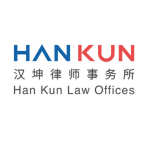The People's Bank of China (PBOC) formulated the Measures for the Administration of Payment Services for Non-Financial Institutions in June 2010, which established the regulatory framework for China's non-banking payment institutions (payment institutions).
In a short span of 10 years, China's non-banking payment industry (payment industry) has leapt to the world's top-level along with the rapid development of China's mobile internet and financial technology, and the regulatory level of China's regulatory authorities has also kept pace with the times.
Supervision of the payment industry is tightening, and the government intends to reshape the supervision principles for payment institutions. Based on the recent critical regulatory events in China's payment industry, the regulatory motivations and predictions for future trends of China's payment industry will be analysed.
Important regulatory events in the domestic payment industry
Payment institutions' access to NetsUnion
From April 2016 to June 2018, the PBOC required payment institutions to conduct inter-bank payment services based on the PBOC's inter-bank clearing system or a legally qualified clearing institution.
On August 4 2017, the Department of Payment System of the PBOC released the 'Notice on the transfer of Online Payment Businesses of Non-banking Payment Institutions' from the Direct Connection Mode to the NetsUnion Platform, requiring that from June 30 2018 all payment institutions should process online payment businesses for customer transactions involving bank accounts through a designated network payment settlement platform operated by the NetsUnion Clearing Corporation (NetsUnion).
The platform now serves as the payment settlement intermediary for any payment institution on one side and the banks of the payers and payees on the other side. According to public data, as of January 2019, all 115 payment institutions that hold online payment licenses have complete access to the NetsUnion platform.
Centralised depository of customer reserve funds
In the early stage of the payment industry in China, payment institutions were allowed to deposit customer reserve funds in the account opened in the name of the payment institutions with the commercial banks.
To strengthen the management of customer reserve funds, the PBOC issued a notice in January 2017, requiring payment institutions to gradually deposit customer reserve funds into the account of the PBOC. Such alteration was finally realised in January 2019 with all customer reserve funds for payment institutions being deposited with the PBOC (except for some specific businesses, e.g. cross-border FX business, cross-border RMB business, payment businesses for fund sales).
In January 2021, the PBOC also issued Measures for the Deposit and Management of Non-banking Payment Institution Customers' Reserve Funds to further clarify the management of the deposit, collection, use, and transfer of the customer reserve funds.
Interconnection of barcode payment
Barcode payment refers to the application of barcode technology (such as barcode, QR code, etc.) by banking financial institutions and payment institutions to identify barcode information through mobile equipment, and realise the fund transfer between the payor and payee.
Various payment institutions provide users with barcode payment services based on their own technical standards, and there are certain barriers between each other.
In August 2019, the PBOC issued the FinTech Development Plan (2019–2021), providing that supervisory authorities promote the interconnection of barcode payment, research and formulate technical standards for the interconnection of barcode payment, unify barcode payment coding rules, establish technical systems for the interconnection of barcode payment, open up barriers to barcode payment services, and realise the mutual recognition of different APPs and merchant barcode identification.
In the future, if various payment institutions adopt unified barcode standards, it will exert an intensive impact on the current barcode payment market.
Pilot programme of DC/EP
Digital currency/electronic payment (DC/EP), as the legal digital currency issued by the PBOC, has significantly accelerated in terms of its advancement and implementation from 2020 to 2021.
The number of participants and transactions and the exchange amount of the DC/EP pilot test have gradually increased, and the usage scenarios cover various fields such as daily living payment, catering services, transportation, shopping and consumption.
Currently, commercial banks are the DC/EP operating institutions, and the payment institutions may serve as the service institutions. The official launch of DC/EP may reshape the landscape of the payment industry in China.
Rectification of Ant Group's payment business
Ant Group, the fintech giant in China, was summoned and made inquiries by the PRC financial regulatory authorities on the eve of its initial public offering (IPO) in November 2020.
The IPO of Ant Group, which could have been the largest IPO in the history of the global capital market, was forced to suspend.
As to Ant Group's payment business, the authorities put forward a number of rectification requirements, including "returning to the origin of payment, enhancing transaction transparency, prohibiting unfair competition", "correcting unfair competition behaviour in the payment business, providing consumers with more payment method options, disconnecting the improper connection between Alipay and other financial products such as Ant Credit Pay (Huabei) and Ant Cash Now (Jiebei), and correcting irregularities such as nesting credit business in the payment link".
Those rectification requirements also set the standard for other fintech giants in terms of their payment business.
New regulations reshape regulatory rules
On January 20 2021, the PBOC issued the Regulations on Non-banking Payment Institutions (Draft for Comment) (new regulations). If it is officially implemented in the future, it will completely reshape the logic of license category of the payment industry in China.
|
|
“The Chinese government is proving to the world its firm determination to open up the payment service market in China” |
|
|
According to the current regulations, (effective since 2010), the PBOC divides the payment industry into three categories, namely 'online payment', 'prepaid card issuance and acceptance' and 'bank card acquiring'.
Such standard of classification was primarily based on the technology and medium used in the payment services, and it is difficult to adapt to the actual business model of the fast-developing market.
From the perspective of functionalism, the new regulations categorise the payment business into two types, namely 'operation of accounts with stored-value functions' and 'payment business processing under specific transactions'.
In addition, based on the principle that payment institutions shall not engage in unfair competition, the new regulations establish anti-trust supervisory system consisting of four levels: early warning of market-dominant position, determination of market-dominant position, supervision of violations of fair competition requirements and enforcement of monopolistic behaviour penalties.
International giants enter China's payment service market
On March 21 2018, the PBOC issued Announcement [2018] No. 7, officially clarifying the access conditions and regulatory policies of the investment of China's payment institutions by foreign institutions.
Meanwhile, the PBOC also stated that it will accept the applications for the investment of China's payment institutions by foreign institutions according to procedures and encourage foreign institutions to participate in the development and competition of China's payment service market.
In September 2019, the PBOC approved the application of shareholding change of GoPay (Guofubao), a payment institution in China. The international giant PayPal acquired 70% of the shares of GoPay through its subsidiary in China, thus officially entering China's payment service market.
In January 2021, PayPal ultimately holds 100% of the shares of GoPay. The Chinese government is proving to the world its firm determination to open up the payment service market in China by its actions and is taking this opportunity to further expand the opening up of China's financial service market.
Analysis of the motivation of payment industry supervision events
There may be short-term and medium-term motivations behind the above-mentioned regulatory events, which correspondingly reflect the regulatory purposes of the regulatory authorities in different dimensions. In particular:
Short-term motivation: to standardise the payment market and reduce the possibility of risk events. For this reason, the regulatory authorities have increased their penalties to increase the cost of non-compliant behaviours of payment institutions and urge payment institutions to operate in compliance. Meanwhile, the regulatory authorities have also considered measures such as 'centralised depository of reserve funds', 'disconnected direct connection', and more pre-regulatory means to the supervisory work.
Mid-term motivation: to change the current pattern of head players in China's payment industry and prevent systemic risks. The 'barcode payment interconnection', 'Anti-Monopoly Guidelines in the Field of Platform Economy' and the 'Regulations on Non-Banking Payment Institutions (Draft for Comment)' are all aimed at reducing the leadship of certain top payment institutions in the market and preventing some payment institutions from causing 'too big to fail' systemic risks due to mixed operations and other behaviours. In addition, related mobile payment tools may be included in the category of 'financial infrastructure', and the regulatory authorities will strengthen supervision on this.
Regulatory trends of the payment industry in China
In addition to the new regulatory principles established in the new regulations, there may be the following regulatory trends:
Use of personal information and data by payment institutions will be more prudent
Since payment data contains a large amount of personal (financial) information (such as account information, identification information, transaction information, personal identification information, property information, credit information), and considering the unique sensitivity of payment data, we believe that the information and data protection of payment institutions will be one of the critical regulatory areas.
Payment institutions need to be more cautious in developing innovative businesses (such as credit evaluation and risk control modeling) based on personal information and payment data.
Boundary between payment institutions and licensed financial businesses within the group will be clearer
Apart from the main business of payment, if other entities in the group to which the payment institution belongs are engaged in multiple financial businesses, such as the sale of funds, insurance products, bank deposits and credit products, they should first follow the principle of 'financial business must be licensed to operate'. Secondly, payment business and such financial business should establish a clear boundary.
The government will take a more cautious and conservative supervisory attitude towards the overlap between payment services of internet companies and other financial businesses and puts forward the requirements of 'returning to the origin of payment' and 'disconnecting payment tools from improper connection with other financial products'.
Financial consumer protection will be more stringent
Financial consumer protection is also a key regulatory area for the future payment industry. For example, the Implementation Measures for the Protection of Financial Consumer Rights and Interests of the PBOC promulgated in 2020 are directly applicable to payment institutions, which further requires payment institutions to protect the rights and interests of financial consumers, incorporate such protection work into corporate governance and development strategies, establish and improve various related internal control systems, disclose the content to consumers in an authentic, accurate and comprehensive manner, and assume responsibility under regulatory requirements.
In general, we believe that the government will continue to tighten the supervision of the payment industry in the future. On the one hand, payment institutions may realise the centralised depository of all payment funds and real-time monitoring of the entire amount of information; on the other hand, supervision may limit payment institutions to the role of 'pure payment technology provider', all kinds of innovative businesses not directly related to the payment business will be subject to stricter restrictions.
The specific regulatory measures that the regulatory authorities will adopt and the final regulatory effect they hope to achieve will also depend on the future development of the payment industry, and we will continue to focus on it.
Click here to read all the chapters from the 6th IFLR Asia Fintech Special Focus 2021

Jun Wan
Partner
Han Kun Law Offices
T: +86 21 6080 0995
Jun Wan is a partner at Han Kun Law Offices. He specialises in fintech, blockchain and cryptocurrency, general banking matters, structured finance, real property finance, securitisation and asset management transactions, and financial institution and quasi-financial institution set-up and investment.
Jun assists fintech enterprises in product design, compliance, restructuring, investing in and setting up financial institutions and quasi-financial institutions, and overseas IPOs. He also represents various international commercial banks, asset management companies, trust companies, and multinational companies in a variety of corporate financing transactions, including structured finance, acquisition finance, real property finance, and pre-IPO/privatisation financing.
Jun has a bachelor's degree in law from Nanjing University, and a LLM from the College of William and Mary Law School.

Yingyu Xia
Associate
Han Kun Law Offices
T: +86 21 6080 0963
Yingyu Xia is an associate at Han Kun Law Offices. He specialises in fintech, banking and finance, personal financial information protection, financial services, and regulatory matters.
Yingyu advises fintech companies on developing financial products in relation to consumer finance, asset management, drafting legal documents, and applying for financial licenses. He advises commercial banks, trust companies, and other financial institutions on product compliance analysis and drafting standardised agreements as well as applying for financial licenses.
Yingyu has a bachelor's degree and a LLM in law from Fudan University.

Yunzhou Li
Associate
Han Kun Law Offices
T: +86 21 6080 0940
Yunzhou Li is an associate at Han Kun Law Offices. His practice focuses on banking and finance, fintech, insurance, and general corporate matters.
Yunzhou provides legal services including analysing structure feasibility, issuing legal opinions, and preparing and reviewing transaction documents. He also focuses on fintech, insurance and third-party payments and advises internet companies on product structures, compliance inquiries and financial license applications.
Yunzhou has a bachelor's degree in law from the East China University of Political Science and Law and a master's degree in law from the University of Leeds.




